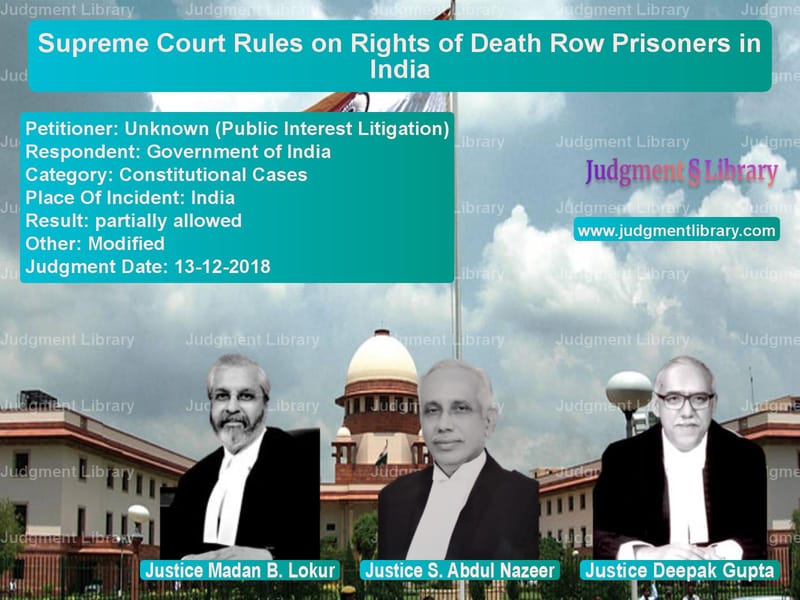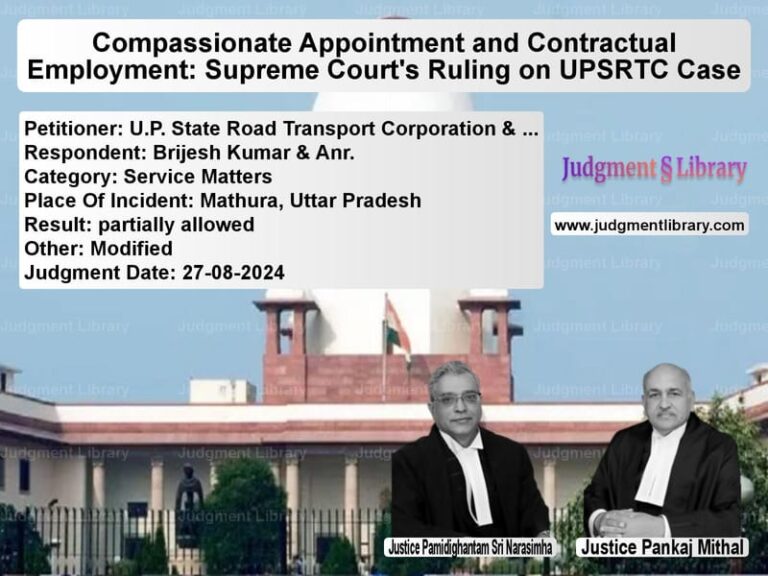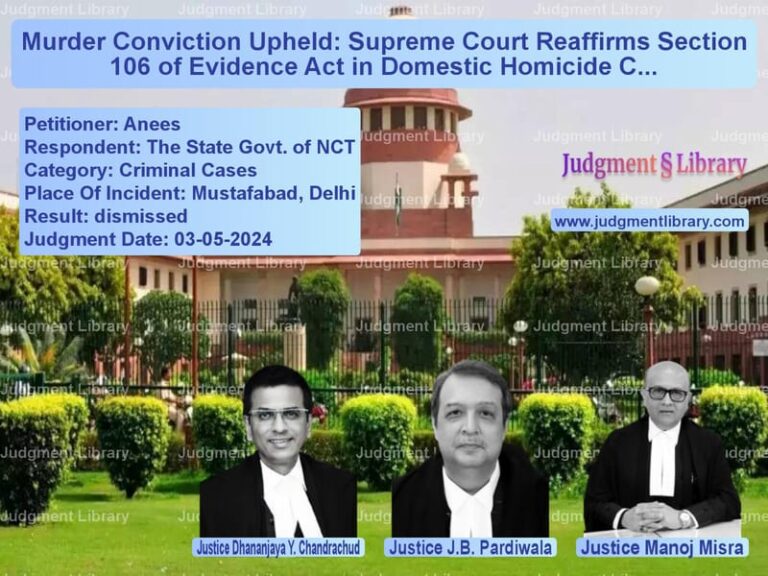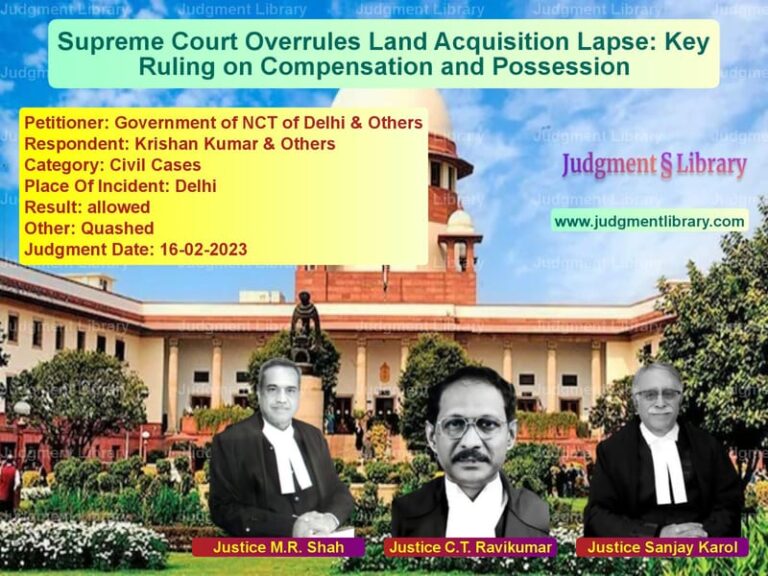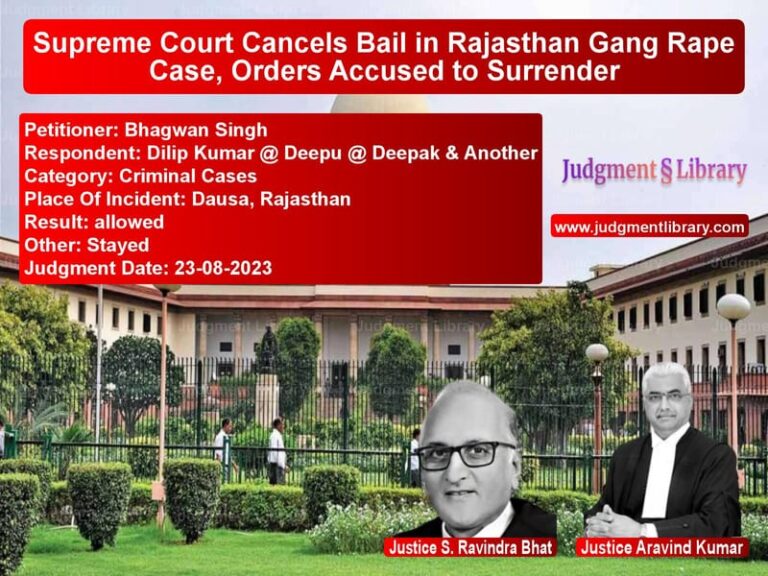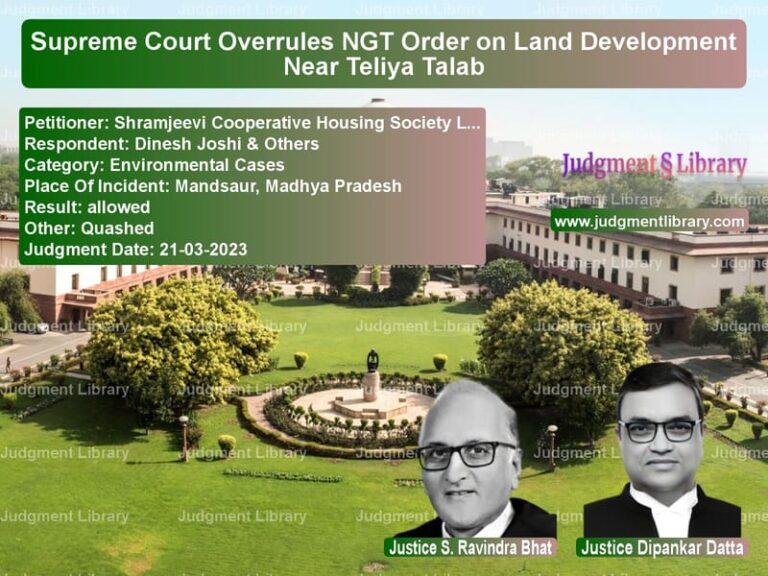Supreme Court Rules on Rights of Death Row Prisoners in India
The case of Inhuman Conditions in 1382 Prisons was a significant ruling by the Supreme Court concerning the rights and treatment of death row prisoners in India. The judgment addressed the constitutional validity of solitary confinement for prisoners sentenced to death, their rights to humane treatment, and access to legal and mental health services. The Court’s ruling emphasized the fundamental rights of prisoners, ensuring they are treated with dignity and not subjected to cruel or inhuman conditions.
Background of the Case
This case originated from a public interest litigation (PIL) highlighting the inhumane conditions in 1382 prisons across India. Among the issues raised was the treatment of prisoners sentenced to death, particularly their confinement in solitary or separate cells and the denial of basic facilities available to other convicts.
Key Issues Addressed
The Supreme Court focused on the following critical issues:
- When a convict is considered to be under a sentence of death.
- Whether death row prisoners should be treated differently from other convicted prisoners.
- The constitutionality of solitary confinement for death row prisoners.
- The rights of death row prisoners to work, education, and skill development.
- The right of death row prisoners to access legal aid and mental health professionals.
Arguments by the Petitioner
The petitioners, represented by an amicus curiae, contended that:
- Prisoners sentenced to death should be treated at par with other convicted prisoners until their sentence is final.
- Solitary confinement or separate confinement of death row prisoners is inhuman and unconstitutional.
- Death row prisoners should have the right to work, participate in education programs, and receive vocational training.
- Their access to family, legal counsel, and mental health professionals should not be restricted.
Arguments by the Respondents
The respondents, representing the government and prison authorities, argued that:
- Prisoners sentenced to death pose security risks and must be confined separately.
- Prison manuals and regulations allow for special confinement conditions for such prisoners.
- Granting them equal facilities might compromise prison security.
Supreme Court’s Observations
The Supreme Court carefully examined the constitutional rights of prisoners and international standards on prison conditions. The key observations were:
1. Definition of Death Row Prisoner
The Court clarified when a prisoner is considered to be under a sentence of death:
“A prisoner can only be said to be under a sentence of death when the sentence has become final, conclusive, and indefeasible, meaning it cannot be annulled by any judicial or constitutional procedure.”
Until then, the convict must be treated like any other prisoner.
2. Solitary Confinement is Unconstitutional
The Court ruled that:
“There is no difference between a separate cell and solitary confinement. A convict on death row is entitled to move within the confines of the prison like any other convict undergoing rigorous imprisonment.”
Solitary confinement before the final rejection of mercy petitions was held to be unconstitutional.
3. Right to Work, Education, and Vocational Training
The Supreme Court held that death row prisoners are entitled to:
- Work on a voluntary basis.
- Participate in educational programs and vocational training.
- Access other institutional facilities available to other prisoners.
The Court emphasized a humanitarian and compassionate approach to prisoner rights.
4. Right to Legal Aid and Mental Health Support
The Court reaffirmed that:
“A prisoner must be entitled to have discussions with his lawyers so that he has effective legal representation and access to justice as well as remedies for justice.”
Additionally, prisoners must have reasonable access to mental health professionals.
5. Compliance with International Standards
The judgment referenced the Universal Declaration of Human Rights and the International Covenant on Civil and Political Rights, ensuring that Indian prison regulations align with global human rights standards.
Supreme Court’s Directives
The Court issued the following directives:
- All prison manuals and regulations must be updated to comply with this judgment.
- State governments and Union Territories must ensure that death row prisoners receive the same treatment as other convicts until their sentence is final.
- Death row prisoners must have access to legal representation, family visits, and mental health professionals.
- The Justice Amitava Roy Committee was directed to examine the issues raised and recommend prison reforms.
Impact of the Judgment
This ruling has far-reaching implications:
- Reforming Prison Conditions: The decision sets a precedent for humane treatment of prisoners.
- Legal Safeguards: It ensures that prisoners have access to legal remedies before execution.
- Protection Against Arbitrary Confinement: Solitary confinement cannot be imposed arbitrarily.
- Policy Changes: The ruling compels prison authorities to amend outdated regulations.
Conclusion
The Supreme Court’s ruling in Inhuman Conditions in 1382 Prisons is a landmark decision ensuring that death row prisoners are treated with dignity and respect until their sentence is final. By reaffirming constitutional protections, the judgment establishes a humane approach to prison administration and aligns Indian laws with international human rights standards.
Petitioner Name: Unknown (Public Interest Litigation).Respondent Name: Government of India.Judgment By: Justice Madan B. Lokur, Justice S. Abdul Nazeer, Justice Deepak Gupta.Place Of Incident: India.Judgment Date: 13-12-2018.
Don’t miss out on the full details! Download the complete judgment in PDF format below and gain valuable insights instantly!
Download Judgment: Unknown (Public Inte vs Government of India Supreme Court of India Judgment Dated 13-12-2018.pdf
Direct Downlaod Judgment: Direct downlaod this Judgment
See all petitions in Fundamental Rights
See all petitions in Public Interest Litigation
See all petitions in Separation of Powers
See all petitions in Judgment by Madan B. Lokur
See all petitions in Judgment by S. Abdul Nazeer
See all petitions in Judgment by Deepak Gupta
See all petitions in partially allowed
See all petitions in Modified
See all petitions in supreme court of India judgments December 2018
See all petitions in 2018 judgments
See all posts in Constitutional Cases Category
See all allowed petitions in Constitutional Cases Category
See all Dismissed petitions in Constitutional Cases Category
See all partially allowed petitions in Constitutional Cases Category

